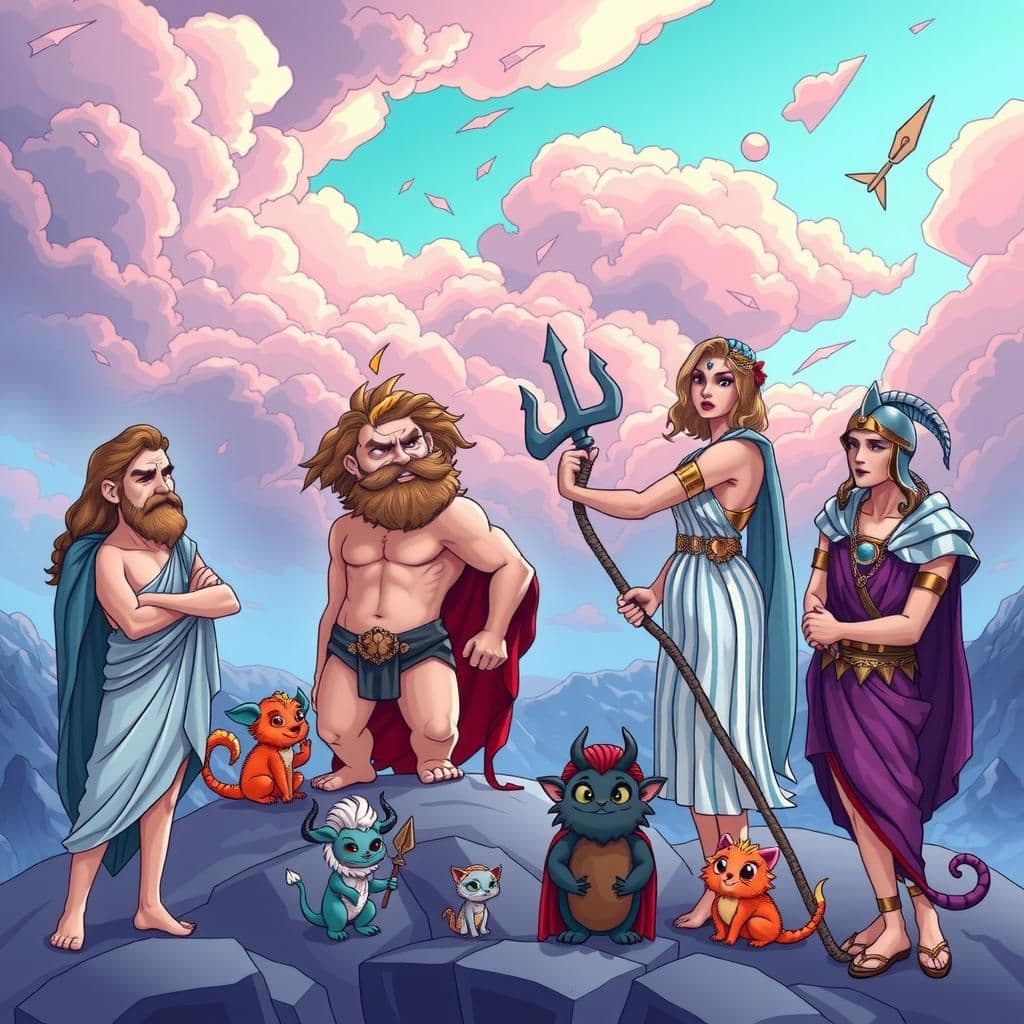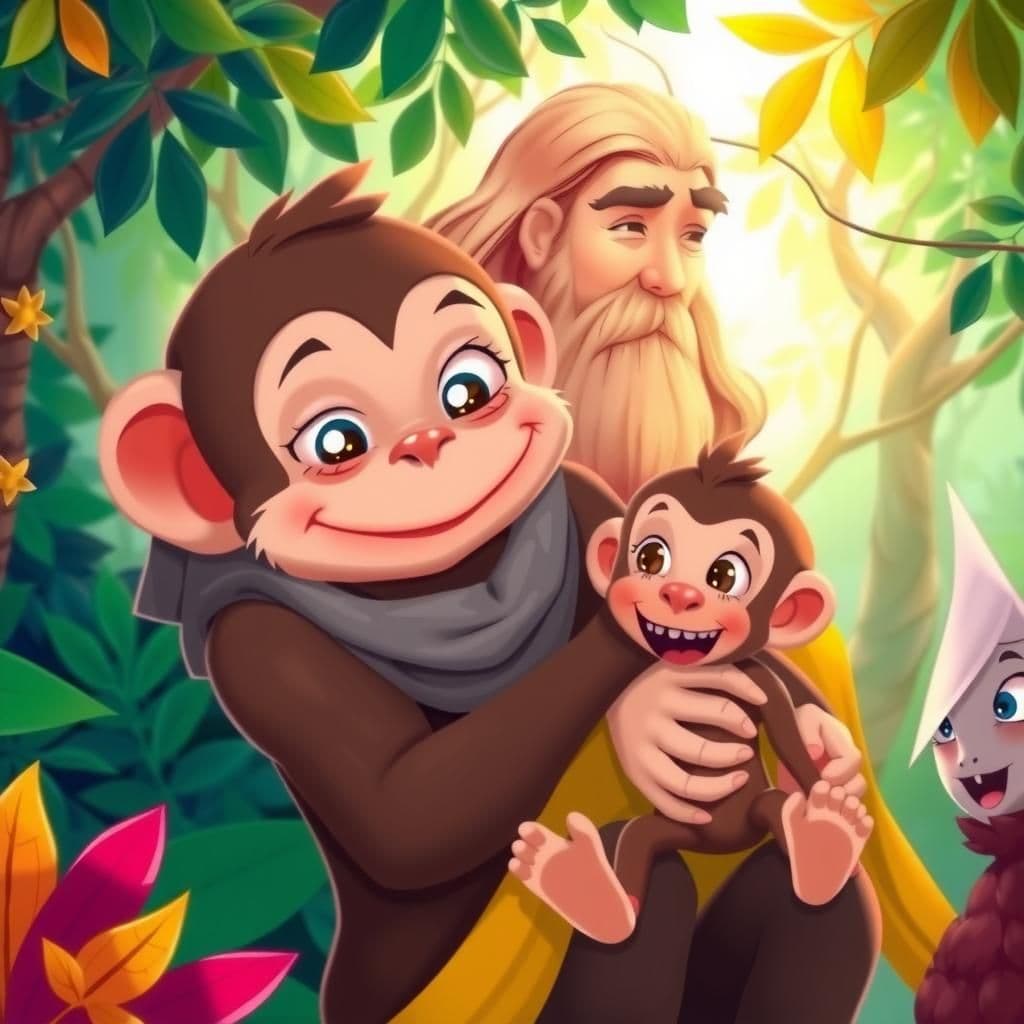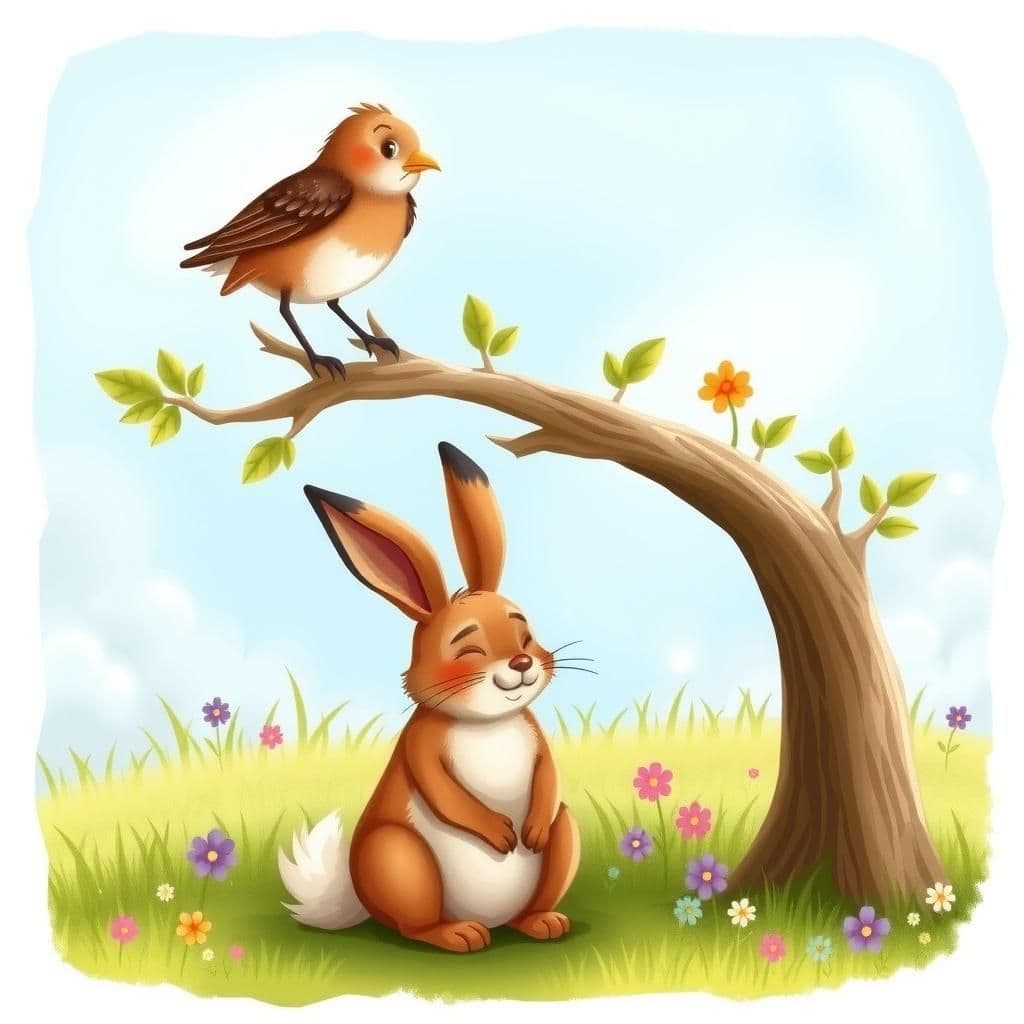The Fly and the Ant
In "The Fly and the Ant," a classic tale from folklore, the boastful fly highlights its glamorous lifestyle and the attention it receives in palaces, while the diligent ant emphasizes the merits of hard work and planning for the future. This short story with moral teaches that vanity is fleeting and often leads to danger, contrasting the superficial allure of the fly with the ant's industriousness and foresight. Ultimately, the moral stories written in this narrative remind us that true security comes from effort and preparation, not from idle boastfulness.

Reveal Moral
"The story illustrates that true worth lies in hard work and preparation for the future, rather than in superficial status and vanity."
You May Also Like

Jupiter Neptune Minerva and Momus
In an ancient legend, Jupiter, Neptune, and Minerva each create significant entities—man, bull, and house—and dispute over whose creation is the most perfect. They appoint Momus as a judge, but his incessant faultfinding leads to humorous critiques of each creation, prompting Jupiter's indignation and Momus's expulsion from Olympus. This funny story offers an uplifting moral about the pitfalls of constant criticism, making it a delightful addition to bedtime moral stories and simple moral tales.

Jupiter and the Monkey
In "Jupiter and the Monkey," a culturally significant moral story, Jupiter promises a reward for the handsomest offspring in the forest. The Monkey proudly presents her ill-featured son, asserting that he is the most beautiful in her eyes, despite the laughter of others. This short and sweet moral story teaches kids that a mother's love transcends appearances, highlighting simple lessons from stories about self-acceptance and inner beauty.

The Sparrow and the Hare
In "The Sparrow and the Hare," a Hare weeps after being attacked by an eagle, only to be mocked by a Sparrow for her lack of speed. However, the Sparrow soon faces a similar fate at the claws of a hawk, providing a poignant lesson in the unpredictability of fate. This short and sweet moral story reminds us that even those who gloat over others' misfortunes may find themselves in a similar predicament.